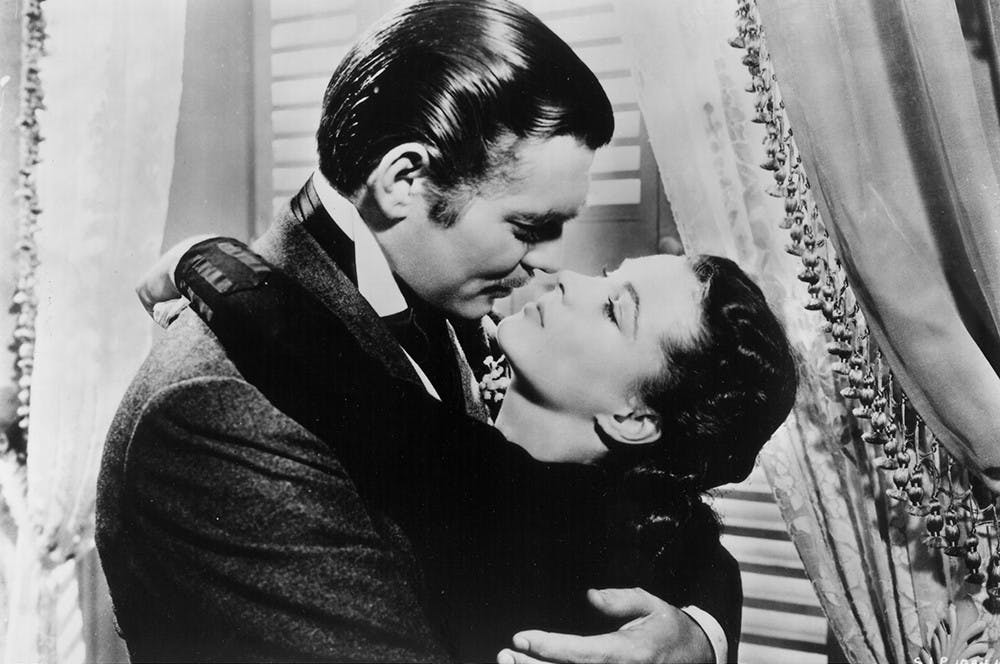In recent months, there has been a fervent and passionate crusade against one of Hollywood’s all-time classics "Gone With The Wind" by contemporary critics for the film’s blatant romanticism of “the South’s lost cause” and the institution of slavery itself.
While the 1939 Oscar winner has always carried the distinction of being one of the most controversial classical Hollywood movies when analyzing it through the current post-1964 New Left lens, the recent debate over the connotation and meaning of the Confederate flag has led to some modern critics to even call for an outright ban of the movie and its disappearance from popular and mainstream culture.
As a supporter of the film, I do see how, at first glance, the film seems to be conveying “the idea that the Civil War was a noble lost cause and casts Yankees and Yankee sympathizers as the villains, both during the war and during Reconstruction," according to the New York Post.
While it’s ridiculous to think that "Gone With the Wind" will ever be banned, there should be second thought given to the film before it is cast off by popular culture as a relic of a more racist and bigoted era.
The fact is that we cannot look at any film that came before the post-1964 New Left movement to deliver the same models of racial enlightenment that we have come to expect today. According to Kent Jones of Film Comment, “holding an artist working in a popular form to the standards of an activist or a statesman, and condemning him for failing to escape the boundaries of his own moment is a fool’s game.”
The mindset that many contemporary critics have in looking back on "Gone With The Wind" is that the filmmakers, Victor Fleming, George Cukor and Sam Wood, should have known better. In reality, they may have only accepted the prevailing and dominant orthodoxy of the time, one now so entirely reversed that yesterday’s way of thinking is now morally dated and imperfect.
Though not holding up to the scrutiny of modern moral enlightenment, controversial films like "Gone With The Wind" and John Ford’s "The Searchers" are much more complex, refined and mature than the simplistic renderings of their “racist” themes and motifs by contemporary critics.
For example, "Gone With The Wind" is not about the politics and ideologies surrounding the Confederacy during the Civil War, but instead the movie focuses on individuals and ideas “about innocence, youth, memory, love (of all kinds), death and loss.”
While the movie is indeed historically inaccurate (a common detractor’s complaint), the film clearly conveys that it’s not focused on the history or politics relating to slavery. According to Roger Ebert, “a politically correct 'Gone With The Wind' would not be worth making, and might largely be a lie.”
In fact, in all these attacks on the film by contemporary critics, there is no mention of the movie’s proudly progressive treatment of women and its argument for sex equality. Why chastise a film for choosing to focus on one social injustice instead of another?
According to Cass Sunstein’s analysis of the original novel, Scarlett is much smarter than her suitors, and she deplores traditional sex roles, which are depicted as confining and foolish. While some depictions of slavery in the movie are indeed incredibly dated on the surface, it’s unfair to the film to completely ignore some of the aspects where "Gone With the Wind" was truly ahead of its time in its portrayal of female characters and their relationships.
And just like "The Searchers," maybe it’s the moral ambiguity of the film that makes it so nuanced and sophisticated; the movie can be analyzed for decades and new ideas about race and discrimination are being found through thoughtful discussion as more layers of the film are peeled back and explored.
For example, film scholars are still arguing over the meaning of Martin’s Native American heritage in the 1956 film "The Searchers" as some believe that it radically portrays a Native American as the hero of a Western movie while others feel that this is problematic because it seems that the rejection of his heritage is what makes Martin the hero.
In both cases, the interpretation of Martin’s character conveys the film’s ideas about miscegenation, or the mixing of different racial groups through marriage, for better or for worse (I obviously believe for the better). Likewise, I believe that "Gone With The Wind" will also be discussed and deconstructed for many years and good, progressive ideas about race and heritage can stem from those debates.
The question, again from Kent Jones, is whether or not we, as audiences, expect moral and ethical faultlessness and perfection from our artists, especially from those from a completely different way of life and time period.
Reach the columnist at ndsmit12@asu.edu or follow @noahsmith1996 on Twitter.
Like The State Press on Facebook and follow @statepress on Twitter.
Editor’s note: The opinions presented in this column are the author’s and do not imply any endorsement from The State Press or its editors.
Want to join the conversation? Send an email to opiniondesk.statepress@gmail.com. Keep letters under 300 words and be sure to include your university affiliation. Anonymity will not be granted.




